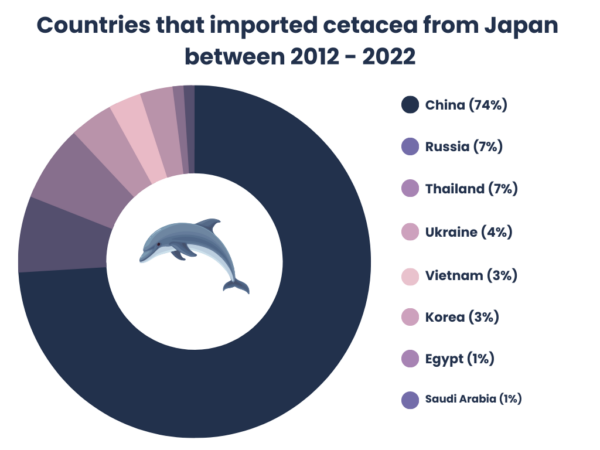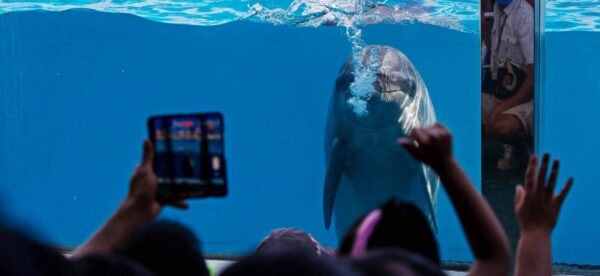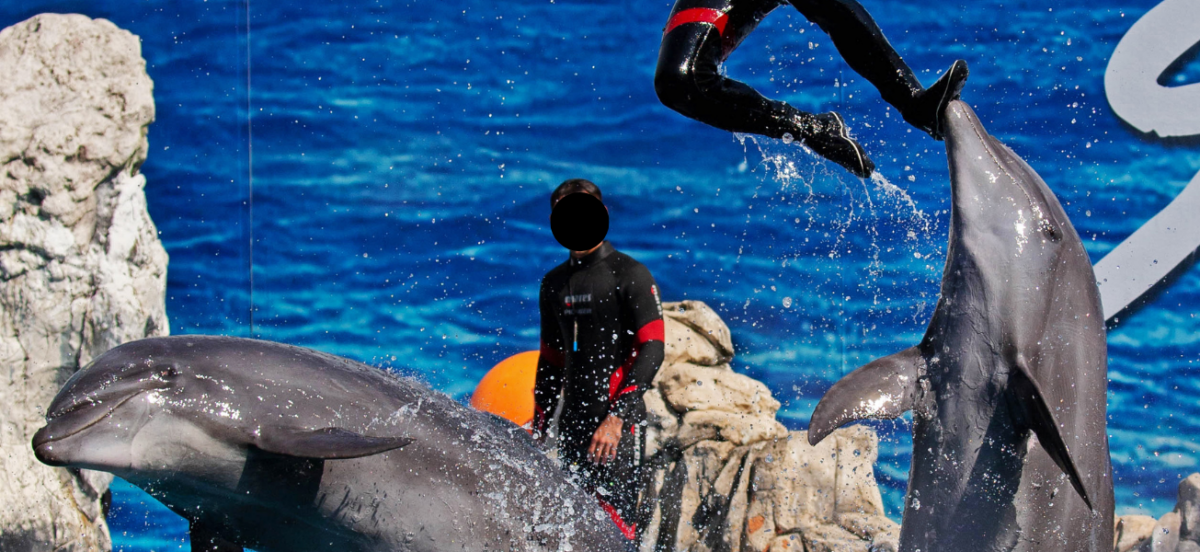Action for Dolphins recognises this pressing challenge and is committed to disrupting this cycle of live dolphins being exported from Japan to Thaialnd. In this blog, we will delve into the facts surrounding Thailand’s connection with the Taiji dolphin trade and explain what we can do to break the cruel cycle to help dolphins.
What is Thailand’s connection to the Taiji dolphin hunts?
Thailand’s involvement in the trade of wild dolphins from Japan is concerning. According to the CITES trade database, Thailand has imported 54 bottlenose dolphins from Japan since 2012. That’s a whopping 7% of all wild dolphins that have been exported from Japan since 2012.

We suspect these dolphins are going to Thai’s marine parks. Within Thailand, three marine parks house captive bottlenose dolphins – Safari World, Pattaya Dolphinarium and Dolphin Bay Phuket. We have written to each marine park asking them to confirm whether the dolphins in their care originate from the Taiji dolphin hunts. Given the alarming numbers of dolphins being exported to Thailand under the trade purpose ‘z’, zoos and aquariums, we can only assume the answer is yes until we are told otherwise.
What is the experience for captive dolphins?
In captivity, their world shrinks drastically. They’re confined in limited spaces, surrounded by artificial environments, and subjected to continuous human interaction and unnatural behaviours, all for humans’ amusement. The confined tanks they are forced to inhabit provide little to no resemblance to their natural habitat. Dolphins, known for their sociability and complex behaviours, are deprived of the vast ocean.

Source: World Animal Protection / Chanklang Kanthong
What do we plan to do about it?
We’re urging Thailand’s marine parks to make a public pledge not to purchase dolphins from the Taiji hunts. If successful, this critical step will sever ties with the dolphin hunters, brokers, and key trading partners.
How can you help?
Join us in taking a stand against the Taiji dolphin hunts. There are many ways you can contribute to ending this cycle of cruelty.
Don’t visit dolphins at marine parks
By refusing to visit marine parks that keep dolphins in captivity, you can help reduce the demand for wild dolphins to be caught from Taiji and put pressure on marine parks to stop buying wild dolphins for entertainment. Make the pledge here.
Choose responsible tourism
If you plan to visit Thailand, make a conscious decision not to support marine parks that continue to keep dolphins in captivity and could potentially engage in the live dolphin trade. Choose responsible tourism options that prioritise animal welfare and promote ethical interactions with marine life.
Support our work
Your donation fuels our work to put pressure on Thai marine parks not to purchase dolphins from the devastating dolphin hunts in Taiji. Let’s end this heartbreaking cycle together. Donate now.
Raise awareness
Share the shocking truth about the Taiji dolphin hunts and the connection with Thailand’s marine parks on social media. By spreading the word, you can help educate others and build a collective voice demanding change. Learn more here.
Subscribe to our newsroom
Keep informed on the risks faced by dolphins and small whales, and the global efforts to protect them.
The Taiji dolphin hunts represent a distressing cycle of cruelty that demands our collective action. Together, we can put pressure on Thailand’s marine parks to sever any ties with the Taiji dolphin hunts. Join us in disrupting this cycle of cruelty for dolphins.
